Smparticle2 - Untitled

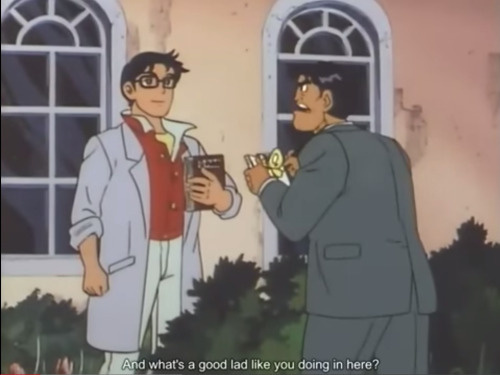
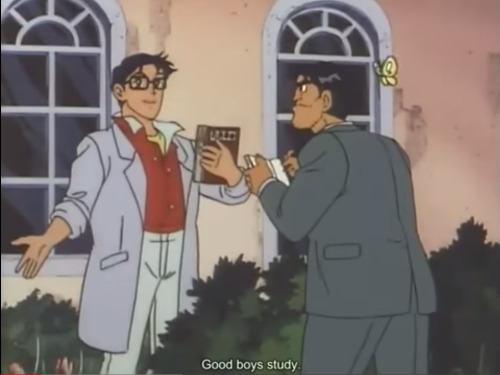
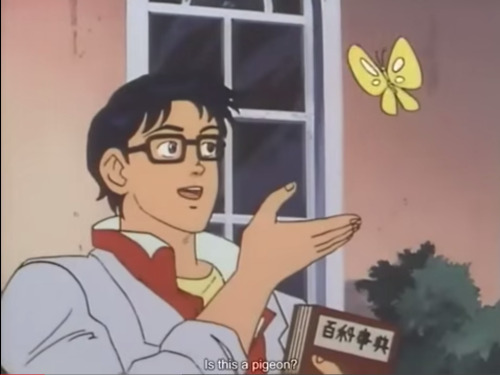
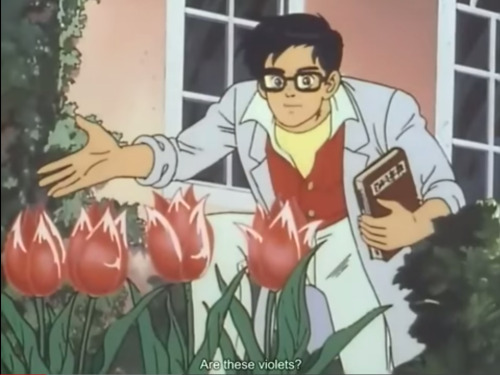

More Posts from Smparticle2 and Others

Faster, smaller, more powerful computer chips: Hafnia dons a new face
Materials research creates potential for improved computer chips and transistors
It’s a material world, and an extremely versatile one at that, considering its most basic building blocks – atoms – can be connected together to form different structures that retain the same composition.
Diamond and graphite, for example, are but two of the many polymorphs of carbon, meaning that both have the same chemical composition and differ only in the manner in which their atoms are connected. But what a world of difference that connectivity makes: The former goes into a ring and costs thousands of dollars, while the latter has to sit content within a humble pencil.
The inorganic compound hafnium dioxide commonly used in optical coatings likewise has several polymorphs, including a tetragonal form with highly attractive properties for computer chips and other optical elements. However, because this form is stable only at temperatures above 3100 degrees Fahrenheit – think blazing inferno – scientists have had to make do with its more limited monoclinic polymorph. Until now.
Read more.

Depositing books due at the library, the grad student takes a humiliating whirlwind tour of everything his past self had planned to read.
NSF’s Science360 Photo of the Week
This is a close-up view of the beam created by a vortex laser.

Because the laser beam travels in a corkscrew pattern, encoding information into different vortex twists, it’s able to carry 10 times or more the amount of information than that of conventional lasers. The optics advancement could become a central component of next-generation computers designed to handle society’s growing demand for information sharing. Image credit: Natalia Litchinitser, University at Buffalo
Like this photo? Sign up for NSF’s Science360 News Service at news.science360.gov for a daily dose of STEM radio, news, videos and more cool images like this.
All these beautiful scenes and all I could think was "LOOK AT ALL THE SCATTERING" :')
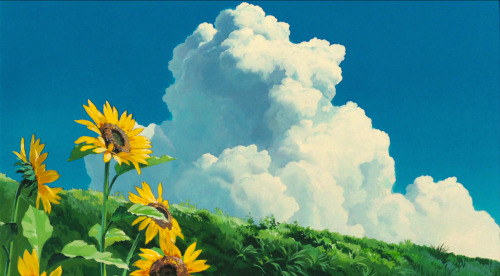

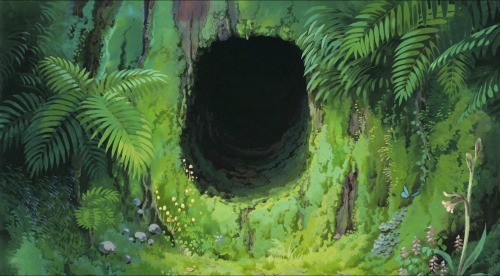

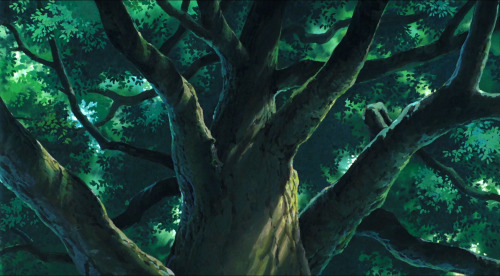
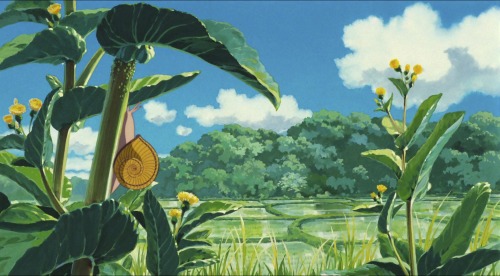
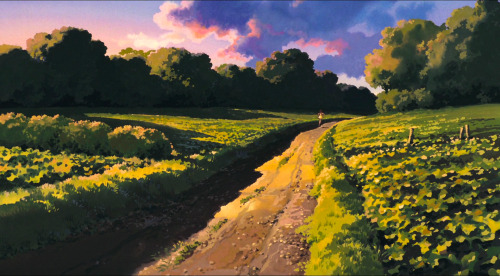
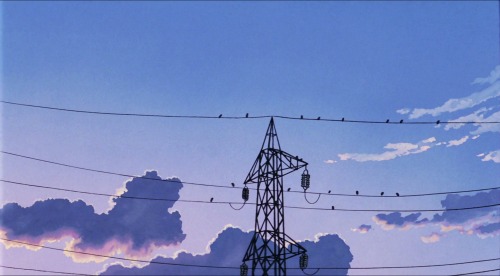
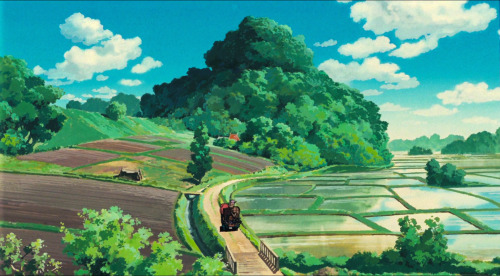
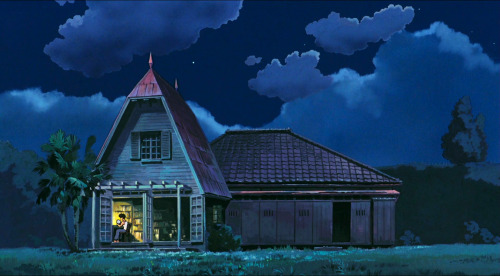
More Art of My Neighbor Totoro - Art Direction by Kazuo Oga (1988)






winter sunrise reflections
by Denny Bitte
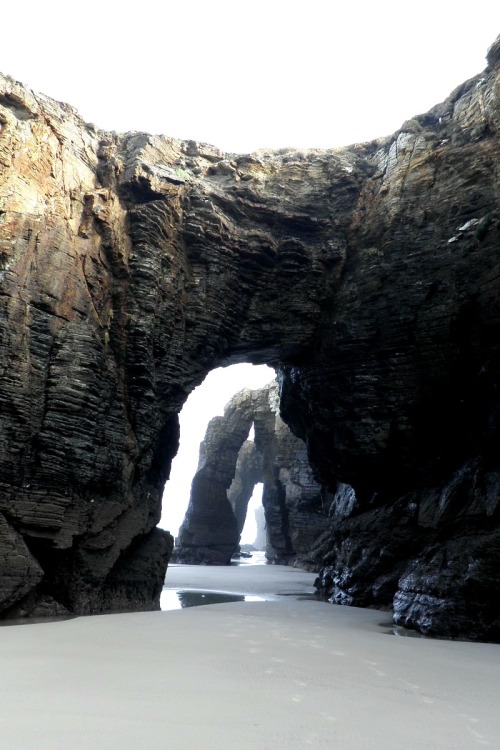
Cathedrals Beach, Galicia


“It is the most passionate relationship of the film. It is almost equivalent to that of Scarlett O’hara and Ashley Wilkes and Scarlett and Rhett Butler. Mammy is Scarlett’s true mother. It is Mammy to whom Scarlett goes to for advice, it is Mammy who sees deeply into Scarlett’s emotions and knows everything that’s going on with her. Whereas Scarlett’s biological mother doesn’t understand the emotional turmoil of her daughter. This is an incredible performance, very inflictive, that unfortunately is never getting discussed these days because of the sensitivity we should properly feel.” -Camille Paglia

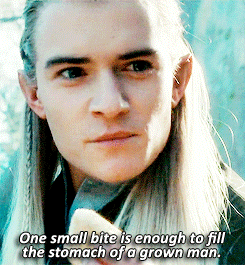
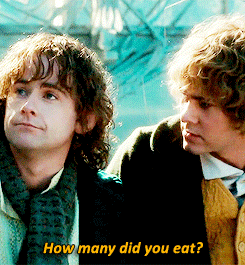
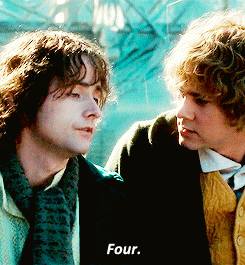

Green method developed for making artificial spider silk
A team of architects and chemists from the University of Cambridge has designed super-stretchy and strong fibres which are almost entirely composed of water, and could be used to make textiles, sensors and other materials. The fibres, which resemble miniature bungee cords as they can absorb large amounts of energy, are sustainable, non-toxic and can be made at room temperature.
This new method not only improves upon earlier methods of making synthetic spider silk, since it does not require high energy procedures or extensive use of harmful solvents, but it could substantially improve methods of making synthetic fibres of all kinds, since other types of synthetic fibres also rely on high-energy, toxic methods. The results are reported in the journal Proceedings of the National Academy of Sciences.
Spider silk is one of nature’s strongest materials, and scientists have been attempting to mimic its properties for a range of applications, with varying degrees of success. “We have yet to fully recreate the elegance with which spiders spin silk,” said co-author Dr Darshil Shah from Cambridge’s Department of Architecture.
Read more.
-
 alcrux87 reblogged this · 2 months ago
alcrux87 reblogged this · 2 months ago -
 but1ur liked this · 2 months ago
but1ur liked this · 2 months ago -
 fablescotch liked this · 3 months ago
fablescotch liked this · 3 months ago -
 michaelerni reblogged this · 3 months ago
michaelerni reblogged this · 3 months ago -
 michaelerni liked this · 3 months ago
michaelerni liked this · 3 months ago -
 mygeekcorner reblogged this · 3 months ago
mygeekcorner reblogged this · 3 months ago -
 world-of-theories liked this · 3 months ago
world-of-theories liked this · 3 months ago -
 howardatlas reblogged this · 3 months ago
howardatlas reblogged this · 3 months ago -
 howardatlas liked this · 3 months ago
howardatlas liked this · 3 months ago -
 inkhorhusk reblogged this · 3 months ago
inkhorhusk reblogged this · 3 months ago -
 wurmholz reblogged this · 3 months ago
wurmholz reblogged this · 3 months ago -
 stupride reblogged this · 3 months ago
stupride reblogged this · 3 months ago -
 caktoz reblogged this · 3 months ago
caktoz reblogged this · 3 months ago -
 lordchuckles044 reblogged this · 4 months ago
lordchuckles044 reblogged this · 4 months ago -
 coldobservationpenut reblogged this · 4 months ago
coldobservationpenut reblogged this · 4 months ago -
 fallenjade reblogged this · 4 months ago
fallenjade reblogged this · 4 months ago -
 the-letter-horror-lover liked this · 6 months ago
the-letter-horror-lover liked this · 6 months ago -
 esotericdivinity liked this · 6 months ago
esotericdivinity liked this · 6 months ago -
 mannequia reblogged this · 6 months ago
mannequia reblogged this · 6 months ago -
 cintia-22 liked this · 6 months ago
cintia-22 liked this · 6 months ago -
 goudsreblogzone reblogged this · 6 months ago
goudsreblogzone reblogged this · 6 months ago -
 goudsbloemtekeningen liked this · 6 months ago
goudsbloemtekeningen liked this · 6 months ago -
 evamme reblogged this · 6 months ago
evamme reblogged this · 6 months ago -
 nekoprankster218 reblogged this · 6 months ago
nekoprankster218 reblogged this · 6 months ago -
 nekoprankster218 liked this · 6 months ago
nekoprankster218 liked this · 6 months ago -
 george-oswald-dannyson reblogged this · 6 months ago
george-oswald-dannyson reblogged this · 6 months ago -
 moonwindstardancer reblogged this · 6 months ago
moonwindstardancer reblogged this · 6 months ago -
 andshegoesboom reblogged this · 6 months ago
andshegoesboom reblogged this · 6 months ago -
 qualitynightmarekryptonite reblogged this · 6 months ago
qualitynightmarekryptonite reblogged this · 6 months ago -
 qualitynightmarekryptonite liked this · 6 months ago
qualitynightmarekryptonite liked this · 6 months ago -
 hunnybel liked this · 6 months ago
hunnybel liked this · 6 months ago -
 cardhoarder reblogged this · 6 months ago
cardhoarder reblogged this · 6 months ago -
 cardhoarder liked this · 6 months ago
cardhoarder liked this · 6 months ago -
 nemrut reblogged this · 6 months ago
nemrut reblogged this · 6 months ago -
 fatesyetunwritten liked this · 6 months ago
fatesyetunwritten liked this · 6 months ago -
 leostar-regalius liked this · 6 months ago
leostar-regalius liked this · 6 months ago -
 brokendreamscreation reblogged this · 6 months ago
brokendreamscreation reblogged this · 6 months ago -
 brokendreamscreation liked this · 6 months ago
brokendreamscreation liked this · 6 months ago -
 capsxblog reblogged this · 6 months ago
capsxblog reblogged this · 6 months ago -
 capsxblog liked this · 6 months ago
capsxblog liked this · 6 months ago -
 cinaminimin reblogged this · 6 months ago
cinaminimin reblogged this · 6 months ago -
 cinaminimin reblogged this · 6 months ago
cinaminimin reblogged this · 6 months ago -
 dragcn-uwu reblogged this · 6 months ago
dragcn-uwu reblogged this · 6 months ago -
 maggie4thewin liked this · 6 months ago
maggie4thewin liked this · 6 months ago -
 valentinbelleyh505 reblogged this · 6 months ago
valentinbelleyh505 reblogged this · 6 months ago -
 valentinbelleyh505 liked this · 6 months ago
valentinbelleyh505 liked this · 6 months ago -
 littledemon55 liked this · 6 months ago
littledemon55 liked this · 6 months ago -
 battersweet liked this · 6 months ago
battersweet liked this · 6 months ago -
 aster-nightingale reblogged this · 6 months ago
aster-nightingale reblogged this · 6 months ago -
 wildwolf-fandoms reblogged this · 6 months ago
wildwolf-fandoms reblogged this · 6 months ago